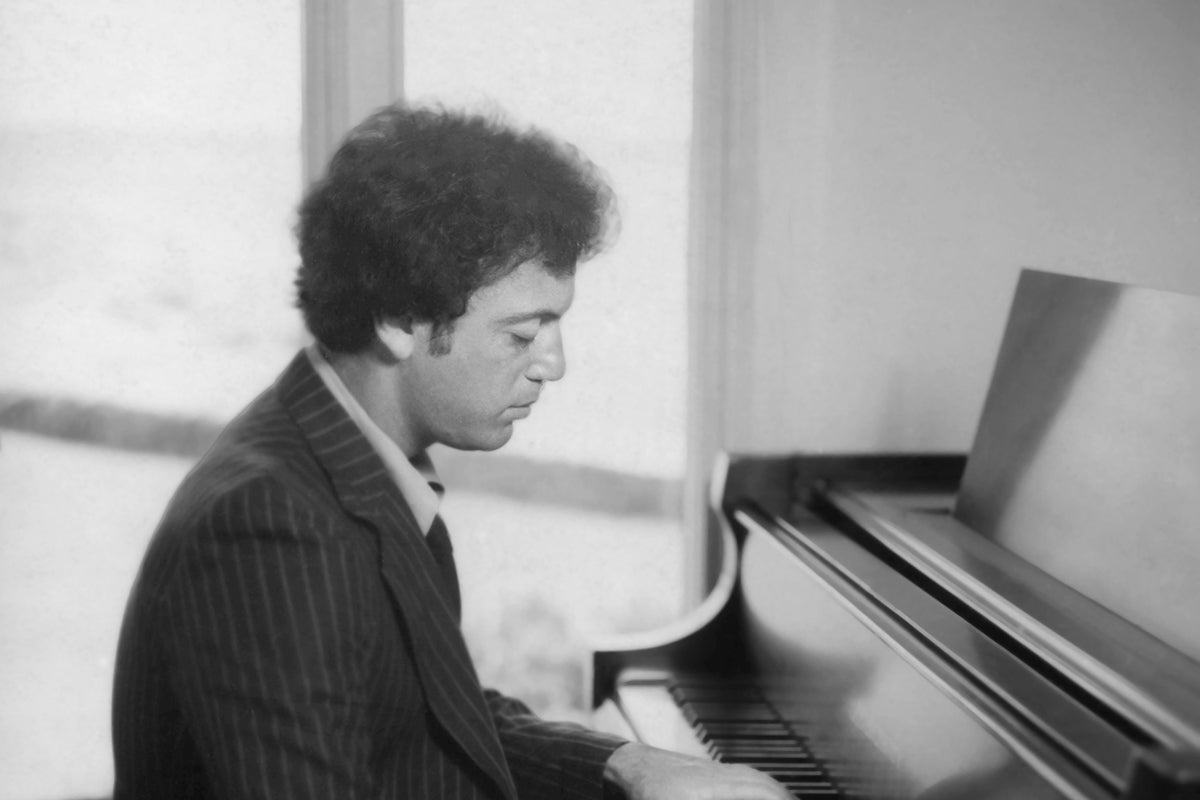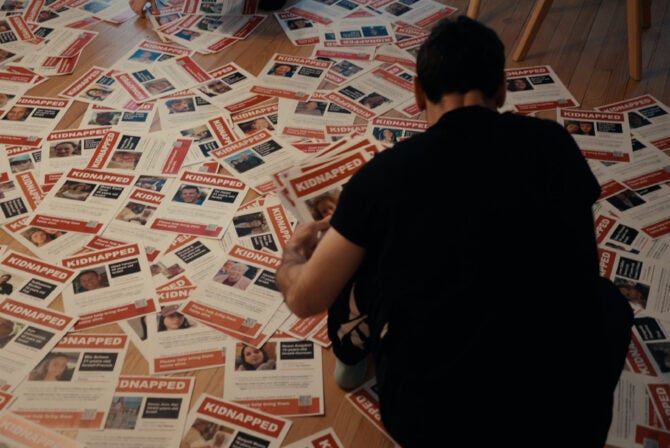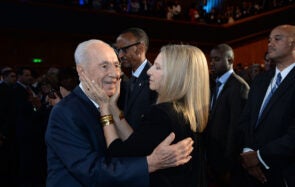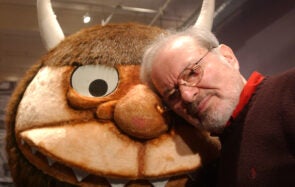I don’t think I’m wrong to think that many fans of Billy Joel’s music may not even realize that the Piano Man is Jewish.
Yet a new documentary series, “Billy Joel: And So It Goes” on HBO Max, highlights his Judaism. The audience learns that the singer of some of the greatest pop and rock hits of the past century sees his Jewish identity as something central and immutable to his existence.
Joel shares this key part of his identity when explaining why, in 2017, after the Unite the Right Rally in Charlottesville — where one woman was killed and Neo-Nazis chanted “Jews will not replace us” — the entertainer started wearing a yellow star to all his concerts.
While Joel has made politics part of his music from very early on, he did not want to get on a soapbox at his concerts and protest Trump saying that “there were very fine people on both sides.” The anger of that moment still feels fresh to him. “We fought a war to defeat these people… He should have come out and said, ‘Those are bad people’… The Nazis are not good people, period,” he says in the documentary.
So he chose the stark visual symbolism of the yellow Star of David to make his point. “No matter what,” he tells the camera, “I will always be a Jew.”
Many decades ago, Julius Streicher’s antisemitic newspaper Der Stürmer called Joel’s grandfather Karl Joel “the Jew Joel.” The attack forced him to sell his successful business, Joel Macht Fabrik in Nuremberg, for a paltry sum — a sum he never got, as he was warned to escape the country before he and his family would be killed. The person he sold the business to would go on to manufacture the striped prisoner outfits Jews wore in concentration camps.
Billy only discovered that fact when he was in his 20s, touring and playing his music, and reconnected with Howard, the father who left him and his mother when he was just 8 years old.
Howard, who was born Helmut Joel in Germany and was 10 when Hitler rose to power, met Billy’s mother, Rosalind, at a Gilbert and Sullivan performance in New York, where he and his family ended up after escaping Nazi Germany. Their courtship was interrupted by World War II. Howard served in the U.S. army and was one of the soldiers who liberated Dachau. It was an experience that he didn’t speak much of, but that hunted him for the rest of his life.
Howard never felt at home in America. He hated the culture and, Joel says, “the antisemitism he ran into [in the U.S.] embittered him a good deal.” After Howard and Rosalind divorced, he left, along with Joel’s grandparents, and returned to Europe.
After meeting his father, who had settled in Vienna, and his half-brother, Alexander Joel, a celebrated music conductor, Billy realized that many of his family members may have worn those yellow Jewish stars and perished in the Holocaust. Their loss is still a pain point to Billy, who says there’s so much of his family story he still doesn’t know. “They wiped out my family,” he said. “I would have liked to know some of these people.”
Billy wasn’t raised to be observant. He said that his father’s Jewish education stopped at his bar mitzvah, and his mother, Rosalind, didn’t raise him particularly religious. But his Jewish parents had a deep impact on him, in ways that were both good and bad.
Watching “And So It Goes” it feels like Billy’s identity — being Jewish, being an outsider, being the descendant of survivors and victims of antisemitism — is the drive behind so much of his music, his defiant swagger, his need to prove himself. The Piano Man is a legend, and a proud Jew. The documentary honoring his life and accomplishments is five hours long — and for this viewer, it was nowhere near long enough.








